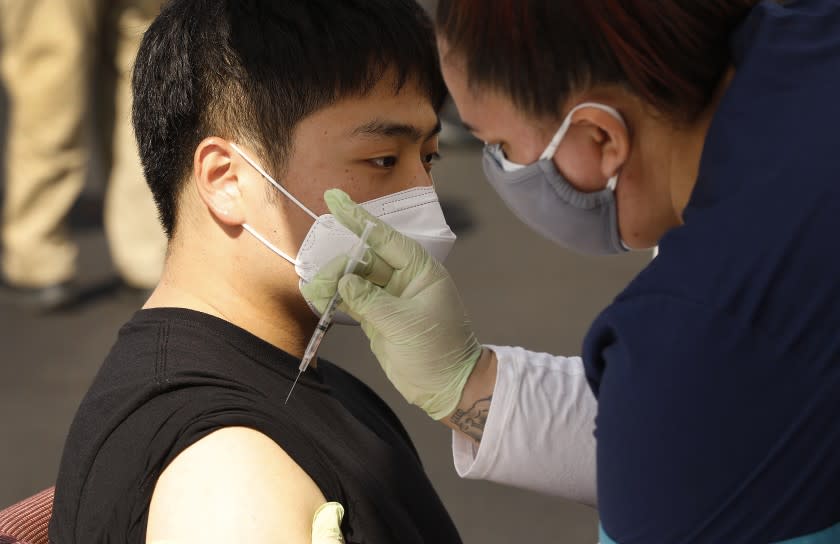I'm fully vaccinated against COVID-19. How long will the protection last?

In the United States, the number of adults who have received at least one dose of a COVID-19 vaccine is now higher than the number who haven’t. In addition, one in three U.S. adults are now fully vaccinated, according to data from the Centers for Disease Control and Prevention.
With so many Americans becoming immunized — and millions more joining them each day — it’s natural to look ahead and wonder how long this protection will last.
The answer is as simple as it is unsatisfying: No one knows.
“We don’t know yet how long immunity lasts from the vaccines that we have at hand right now,” Dr. Katherine O’Brien, who heads the vaccines department at the World Health Organization, said in a podcast. “We’re really going to have to wait for time to pass to see just how long these vaccines last.”
The first two vaccines authorized by the Food and Drug Administration — one made by Pfizer and BioNTech, the other made by Moderna — started going into arms in late July as part of their Phase 3 clinical trials. The second doses came three weeks later in the Pfizer-BioNTech trial and four weeks later in Moderna’s.
After the second dose, it takes an additional two weeks for the immune system to build up to full protection. That means the first people to become fully immunized hit that mark in September — about six months ago.
The vaccine makers are keeping track of these clinical trial volunteers and testing them to see if the benefits of their shots have held steady or begun to wane. So far, both are looking strong.
As of April 1, the number of people who were at least six months out from their second dose of the Pfizer-BioNTech vaccine had passed 12,000, and they are still seeing “high vaccine efficacy,” according to Albert Bourla, Pfizer’s chief executive.
Among all trial participants, the vaccine has been 91.3% effective at preventing cases of COVID-19 up through March 13, Pfizer and BioNTech said in a statement. That figure increased to 92.6% for participants from the U.S. In addition, the vaccine was at least 95.3% effective at preventing cases of severe COVID-19.
The companies said they plan to publish more detailed data in a peer-reviewed medical journal soon.
Moderna said in a statement last week that its vaccine was more than 90% effective at preventing all types of COVID-19 and more than 95% effective at preventing severe cases of the disease among its clinical trial participants. About half of those people were at least six months out from the point when the vaccine took full effect.
Additionally, blood tests of 33 people who participated in the first phase of Moderna’s clinical trial showed that coronavirus antibodies remained prevalent six months after they received their second shot. Those results were published this month in the New England Journal of Medicine.
Only time will tell how long this performance will last.
In the meantime, both companies are working on booster shots that would stimulate a flagging immune system. Some of those boosters are designed to better target the new coronavirus variants that have emerged since the original vaccines were created.
This story originally appeared in Los Angeles Times.

